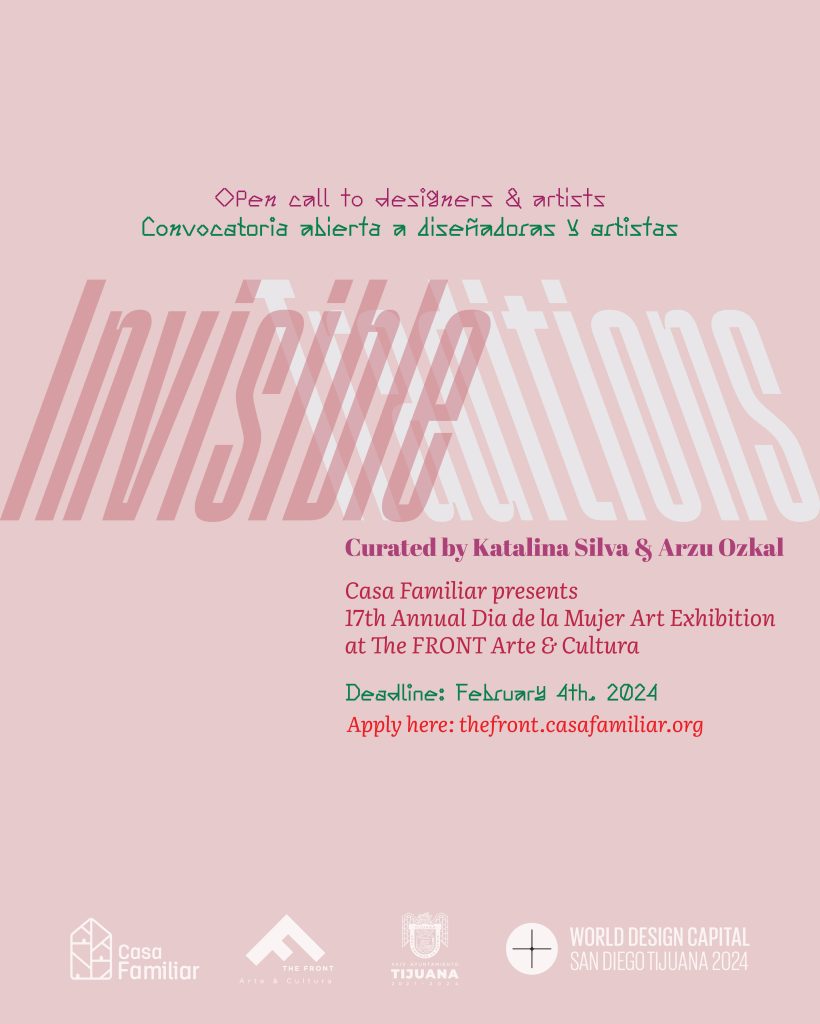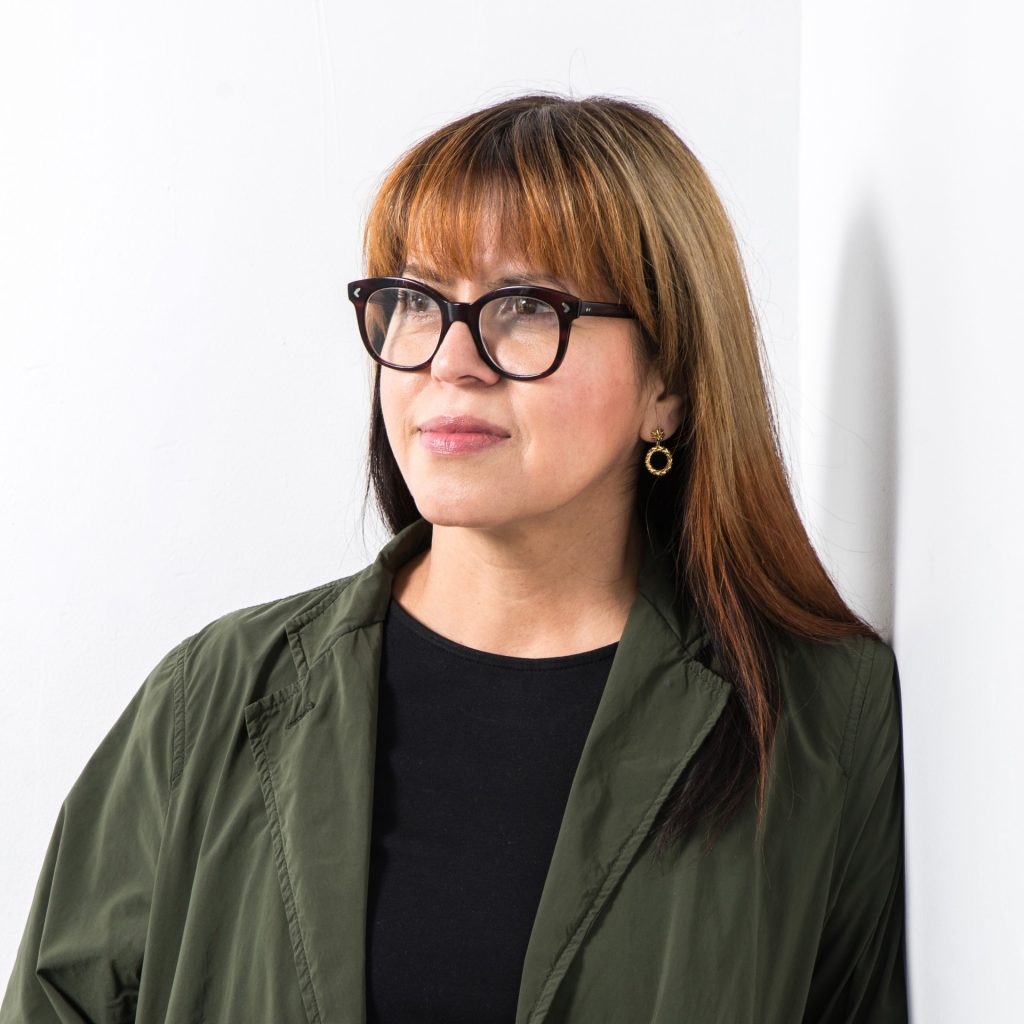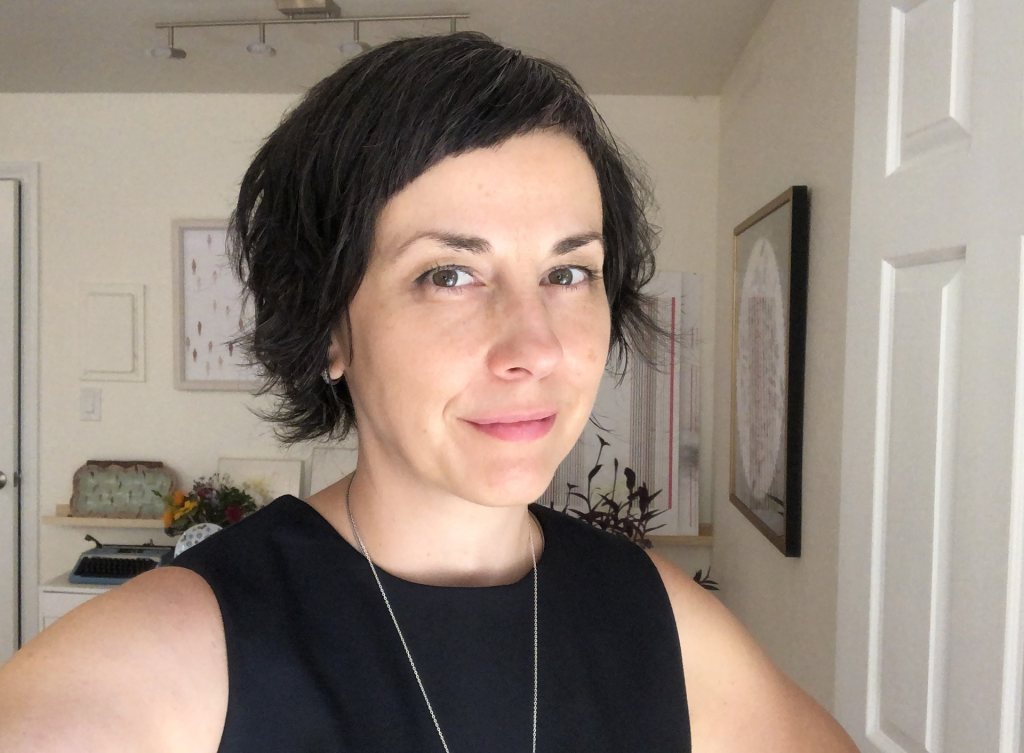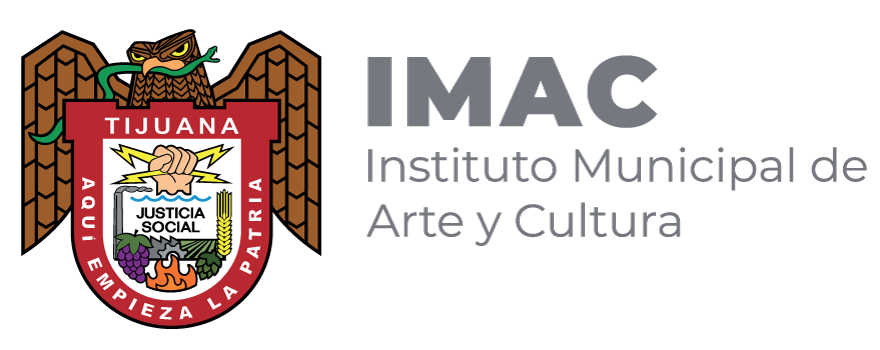
We are excited to announce the open call to our 17th Annual Dia de la Mujer exhibition, curated this year
by Katalina Silva and Arzu Ozkal.
FOR THE FIRST TIME EVER, THE EXHIBITION WILL TAKE PLACE IN TWO CITIES: TIJUANA AND SAN DIEGO in collaboration with the Instituto Municipal de Arte y Cultura de Tijuana IMAC
To apply, please read our guidelines thoroughly before downloading our fillable application.
GUIDELINES: Dia de la Mujer Guidelines 2024 – ENG
Dia de la Mujer Instrucciones 2024 – ESP
APPLICATION: DOWNLOAD – Fillable Application
Participating artists are asked to submit their artwork in
exploration and conversation with this theme:
Invisible Traditions / Tradiciones Invisibles
Certain socio-cultural practices might fade into obscurity or become less visible in everyday life, but they still hold significance. They can contribute to a sense of belonging among members of a group or exert control, particularly over those who are marginalized.
When these practices are rooted in power dynamics, they might perpetuate inequality, suppress voices, and limit opportunities for those who already bear the weight of societal disadvantages. This dichotomy within invisible traditions highlights the complexity of their influence and calls for a nuanced exploration.
The role of design within this context is equally multifaceted. Can design perpetuate harmful stereotypes and spread ideologies that support oppressive systems? It is important for designers to critically examine their choices and consider the potential consequences of their designs on communities such as Black, Indigenous, People of Color (BIPOC). This examination goes beyond aesthetics and into the realm of ethics, involving questioning the narratives embedded in their designs, the symbols they employ, and the messages they convey.
«Invisible Traditions» highlights women and non-binary designers and artists who use their creativity to bring hidden practices, beliefs, and customs to light and challenge their impact. This project serves as an avenue for both celebration and introspection.
— ESPAÑOL —
Estamos emocionados de anunciar la 17ma exhibición anual del Dia de la Mujer
Curada por: Katalina Silva y Arzu Ozkal.
POR PRIMERA VEZ, LA EXHIBICION SE LLAVARA A CABO EN DOS CIUDADES: TIJUANA Y SAN DIEGO – En colaboración con el Instituto Municipal de Arte y Cultura de Tijuana IMAC
Para aplicar, por favor leer los requerimentos antes de bajar la aplicación.
REQUERIMENTOS: Dia de la Mujer Guidelines 2024 – ENG
Dia de la Mujer Instrucciones 2024 – ESP
APPLICACIÓN: DOWNLOAD – Fillable Application
Se pide a los artistas participantes que envíen sus obras de arte en
exploración y conversación con este tema:
Tradiciones Invisibles / Tradiciones Invisibles
Ciertas prácticas socioculturales pueden desaparecer en la oscuridad o volverse menos visibles en la vida cotidiana, pero aún mantienen su importancia. Pueden contribuir a un sentido de pertenencia entre los miembros de un grupo o ejercer control, particularmente sobre aquellos que están marginados.
Cuando estas prácticas están arraigadas en dinámicas de poder, pueden perpetuar la desigualdad, suprimir voces y limitar las oportunidades para quienes ya soportan el peso de las desventajas sociales. Esta dicotomía dentro de las tradiciones invisibles resalta la complejidad de su influencia y exige una exploración matizada.
El papel del diseño en este contexto es igualmente multifacético. ¿Puede el diseño perpetuar estereotipos dañinos y difundir ideologías que apoyan sistemas opresivos? Es importante que los diseñadores examinen críticamente sus elecciones y consideren las posibles consecuencias de sus diseños en comunidades como las personas negras, indígenas y de color (BIPOC). Este examen va más allá de la estética y entra en el ámbito de la ética, e implica cuestionar las narrativas incorporadas en sus diseños, los símbolos que emplean y los mensajes que transmiten.
«Invisible Traditions» destaca a mujeres y diseñadores y artistas no binarios que utilizan su creatividad para sacar a la luz prácticas, creencias y costumbres ocultas y desafiar su impacto. Este proyecto sirve como una vía tanto para la celebración como para la introspección.

Katalina Silva, a transborder designer, is the co-founder and creative director of Enigma Creative and Tijuana Design Week. She co-authored and coordinated the winning proposal for the San Diego – Tijuana World Design Capital in 2024 and served as the Designer in Residence at the UCSD Design Lab (2021, 2022). With a rich background, she organizes CreativeMornings Tijuana (2014), contributes to the San Diego Design Week committee (2020), and collaborates with Design for Good (2022). In 2023, she co-founded the Here and There design residency program and currently directs visual communication at Pragma, a platform dedicated to planetary transformation design.

Arzu Ozkal (she/her/ella) is a Turkish born, San Diego, California based artist, designer, and researcher. Ozkal’s practice is committed to fostering collaboration and inclusivity while critically engaging with social and cultural issues. Ozkal is a graphic design professor at San Diego State University. She holds an MFA from the University at Buffalo, SUNY and a BFA from Bilkent University. Ozkal’s work has been exhibited and recognized globally, with her pieces being included in collections across the Country.
More info: https://www.contrary.info/

